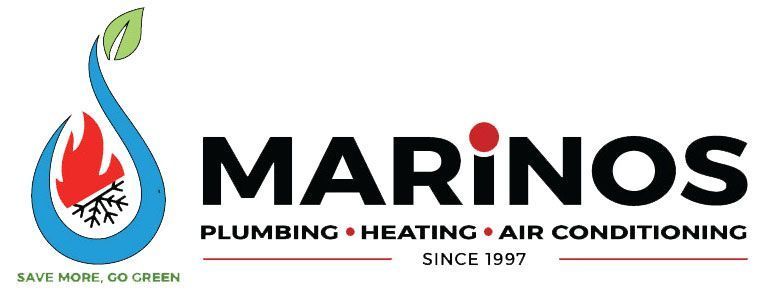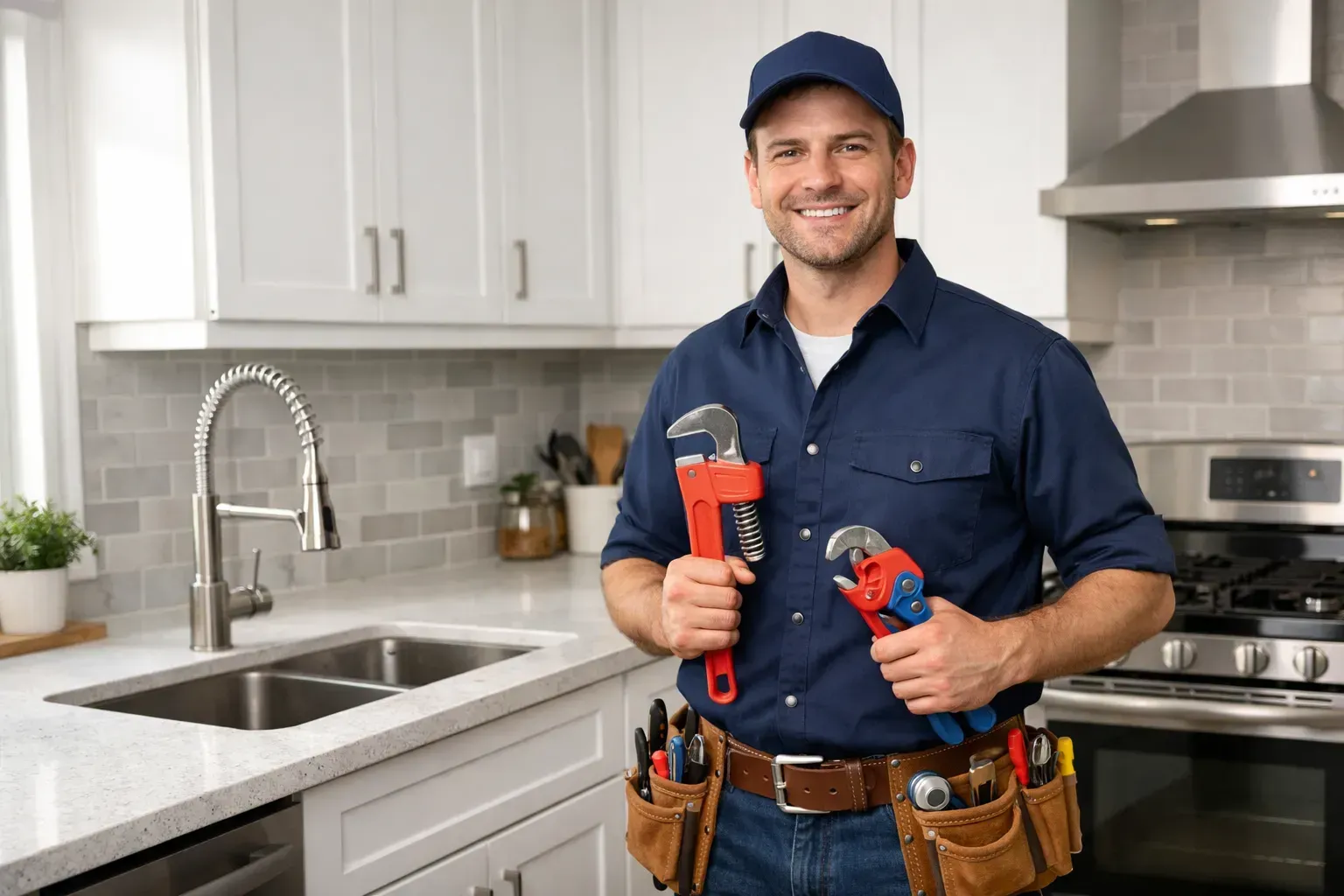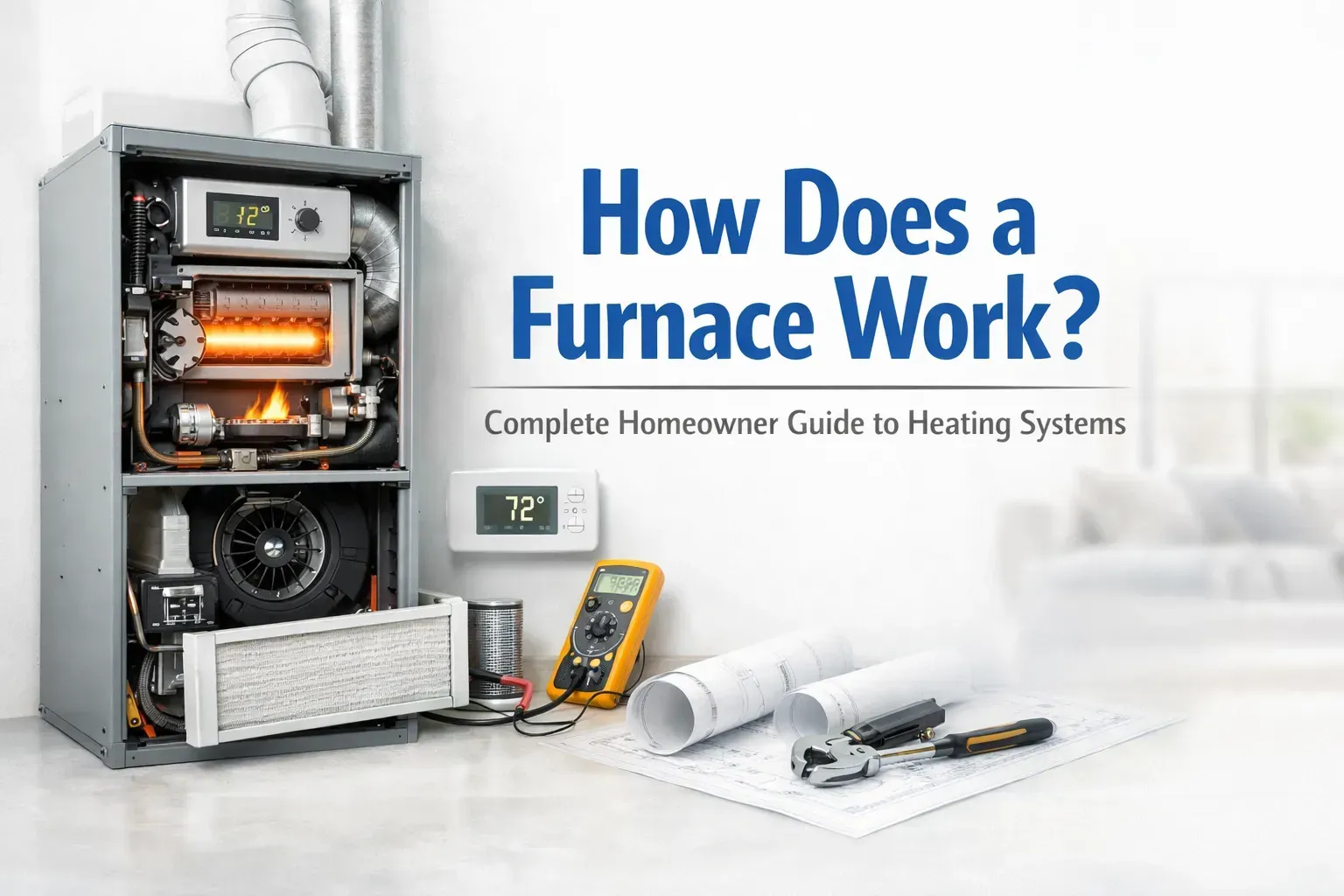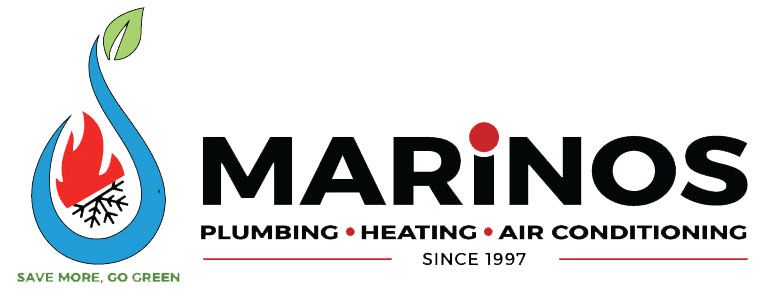Boiler Heating Systems: Costs and Maintenance Tips
Boiler heating systems have become a staple in modern homes, offering reliable warmth and long-term efficiency.
Whether you’re installing one for the first time or replacing an older model, understanding how boilers work, their costs, and how to maintain them can save you thousands in the long run.
In this guide, we’ll explore everything from installation expenses to simple maintenance tips that keep your boiler running smoothly year after year.
What is a Boiler Heating System?
Unlike forced-air systems that blow hot air through vents, boilers heat water to provide radiant warmth throughout your home. This system is known for delivering consistent, comfortable heat that’s especially ideal for colder climates.
How Boiler Heating Systems Work
Boiler heating systems operate by heating water within a sealed unit. Once the water reaches the desired temperature, it circulates through radiators, baseboard heaters, or underfloor heating pipes to distribute warmth evenly. The cooled water then returns to the boiler to be reheated—creating a closed-loop system that efficiently reuses water and heat.
Modern boilers use either gas, oil, or electricity as fuel sources.
Gas boilers are the most common, offering a great balance between efficiency and affordability. Electric boilers are quieter and more compact, but tend to cost more to run depending on your electricity rates. Oil boilers, while powerful, require more maintenance and are less eco-friendly.
The beauty of this setup lies in its silent, dust-free operation.
Unlike air-based systems that can spread allergens, boilers provide radiant heat that doesn’t disturb air quality—making them an excellent choice for allergy sufferers and those seeking even, gentle warmth throughout their space.
Different Types of Boilers
Boilers come in several designs, each tailored to specific home needs and energy preferences. The main types include combi (combination), system, and conventional boilers.
- Combi Boilers: These provide both heating and hot water directly from the unit, eliminating the need for a separate water tank. They’re compact, efficient, and ideal for smaller homes.
- System Boilers: These require a cylinder for hot water storage but don’t need a separate tank. They can handle higher hot water demands, perfect for medium to large households.
- Conventional Boilers: Also known as regular or traditional boilers, these systems use both a tank and a cylinder. While they take up more space, they’re great for homes with older heating systems or multiple bathrooms.
Each type has its advantages depending on your property size, hot water usage, and installation budget.
Advantages of Using Boiler Heating Systems
Boilers stand out from other heating options for their consistent performance and long-term reliability. Before exploring specific advantages, it’s worth noting that a well-installed and maintained boiler can last 15 to 25 years—far longer than many forced-air systems.
Consistent and Even Heating
One of the biggest reasons homeowners prefer boilers is the comfort factor. Radiant heat from a boiler provides steady, even warmth that fills every corner of your home. Unlike furnaces that push hot air through vents, creating uneven temperatures, boilers maintain a balanced heat level throughout the entire space.
Boilers also eliminate cold drafts. Because they rely on heated water instead of moving air, you won’t experience the dryness or dust that often comes with traditional heating systems. This makes them a healthier and more comfortable option, especially during harsh winters when indoor air can become stale or dry.
Additionally, radiant heating feels naturally cozy—it warms surfaces and objects rather than just the air. This means your floors, furniture, and walls all retain warmth longer, reducing the need to crank up the thermostat and saving you money on energy bills.
Energy Efficiency Benefits
Efficiency is one of the main selling points of boiler systems. Modern condensing boilers, for example, can achieve up to 98% efficiency by recovering heat from exhaust gases that older models would waste. This not only lowers your carbon footprint but also reduces energy costs over time.
Boilers are also incredibly adaptable. Many models can integrate with renewable energy sources, such as solar water heating systems, to further enhance efficiency. And because they use water to transfer heat—a much better conductor than air—less energy is wasted in distribution.
Investing in an efficient boiler can lead to significant long-term savings. While the upfront cost may be higher, reduced monthly energy bills and fewer repair needs make boilers a cost-effective heating solution for any homeowner focused on sustainability and comfort.
Types of Boiler Heating Systems
Understanding the types of boilers available is crucial when choosing the right system for your home. Each type offers unique benefits in terms of efficiency, installation requirements, and heating performance. Let’s explore the most common options.
Combi Boilers
Combi boilers, short for combination boilers, are the most popular type in modern homes. They heat both your home and your tap water directly from one compact unit. There’s no need for a separate water tank or cylinder, which saves space and simplifies installation.
These boilers are perfect for smaller homes or apartments where space is limited. Because they heat water on demand, there’s no waiting time for hot water and no risk of running out. However, they might struggle to supply multiple hot water outlets simultaneously, which can be a drawback in larger households.
The biggest advantage of a combi boiler is efficiency. Since water is only heated when needed, there’s no energy wasted keeping a tank warm. Plus, modern combi boilers are equipped with advanced temperature controls, ensuring optimal comfort while keeping energy consumption low.
System Boilers
System boilers strike a balance between efficiency and capacity. They require a hot water cylinder but not a separate cold water tank, making them more compact than conventional systems while still supporting high hot water demand.
These boilers are ideal for medium to large households with multiple bathrooms. They can deliver consistent water pressure to multiple outlets simultaneously—a feature combi boilers can’t match. Additionally, since key components like pumps and valves are built into the unit, installation is typically faster and more straightforward.
System boilers are also compatible with solar water heating systems, offering an eco-friendly way to reduce energy costs. While they do take up more space than a combi boiler, their performance and reliability make them a strong choice for families.
Conventional Boilers
Conventional boilers, often called traditional or regular boilers, are the oldest and most established type. They use both a cold water storage tank (usually in the attic) and a hot water cylinder. This setup allows for high water flow rates, making it ideal for large homes with several bathrooms.
The main advantage of conventional boilers is their ability to deliver a steady supply of hot water to multiple outlets simultaneously. They’re especially suitable for older homes with existing radiator systems that require higher water pressure.
However, the installation can be more complex and space-intensive. You’ll need room for both tanks and a cylinder, which may not suit smaller properties. Still, for homes with higher heating demands, conventional boilers remain a powerful and dependable solution.
How to Choose the Right Boiler for Your Home
Choosing the right boiler heating system can feel overwhelming, especially with so many options on the market. Before jumping into a purchase, it’s crucial to consider your home’s size, heating needs, and long-term energy goals. The right boiler should not only provide comfort but also save money on utility bills and maintenance in the long run.
Factors to Consider (Size, Energy Source, Space)
When selecting a boiler, the first step is to determine the correct size—or capacity—for your home. A boiler that’s too small will struggle to heat your space efficiently, while one that’s too large will waste energy and increase operating costs. Boiler capacity is typically measured in kilowatts (kW), and as a general rule, a small home might require a 12–15 kW system, while a larger property could need 24–30 kW or more.
Next, think about your available energy sources. Gas boilers are the most common due to their affordability and wide availability. However, if your area doesn’t have a natural gas supply, oil or electric boilers might be more suitable. Electric models are quiet, compact, and environmentally friendly—especially when paired with renewable energy sources like solar panels.
Space is another critical consideration. Combi boilers are excellent for smaller homes or apartments since they don’t require external tanks or cylinders. For larger homes, system or conventional boilers offer more hot water capacity and better performance for multiple bathrooms. Ultimately, your choice should balance energy efficiency, water demand, and installation feasibility.
Comparing Boiler Models and Brands
Once you’ve determined the right type and size, the next step is comparing brands and models. Leading boiler manufacturers like Worcester Bosch, Vaillant, Baxi, and Ideal have built strong reputations for reliability and energy efficiency. Each brand offers different warranty lengths, smart controls, and energy ratings that can influence your decision.
When comparing boilers, pay attention to energy efficiency ratings (often shown as ErP ratings). A-rated boilers are the most efficient, converting over 90% of fuel into usable heat. You should also consider modern features like smart thermostats or remote monitoring, which allow you to control your heating system through a smartphone app—saving both energy and money.
Don’t overlook customer reviews and warranty coverage. A boiler is a long-term investment, and a solid warranty (5 to 10 years) ensures peace of mind. It’s also wise to have your boiler installed by a certified technician, as professional installation not only ensures safety but can also impact the warranty’s validity.
Installation Costs of Boiler Heating Systems
Before committing to a new boiler, it’s essential to understand the associated installation costs. These can vary widely depending on the type of system, your home’s size, and any necessary upgrades to your existing infrastructure. Knowing what to expect financially will help you plan and avoid unpleasant surprises.
Breakdown of Installation Expenses
Installing a boiler typically involves several components: the boiler unit itself, labor, additional materials, and any modifications required for compatibility with your home’s current heating setup. On average, installation labor costs can range between $1,000 and $2,500, depending on complexity and local labor rates.
If your home requires new pipework, radiators, or ventilation upgrades, those costs will add up quickly. For example, replacing an older conventional system with a modern combi boiler may require rerouting pipes and removing old tanks—adding a few hundred dollars to the total bill. Always request a detailed estimate from your installer before starting any work.
In addition, it’s wise to factor in inspection and testing fees. Certified installers must test your new system for efficiency and safety compliance. Though this step might seem minor, it’s crucial for ensuring your boiler operates safely and performs at peak efficiency.
Operating Costs and Energy Efficiency
Once installed, the cost of running your boiler depends largely on fuel type, efficiency, and usage habits. Understanding your operating costs helps you plan your energy budget and identify ways to cut expenses without compromising comfort.
Annual Energy Costs Explained
Boiler energy consumption varies depending on its efficiency rating and the size of your home. On average, gas boilers cost between $800 and $1,500 per year to operate, while oil boilers may cost slightly more—around $1,200 to $2,000 annually. Electric boilers can range widely based on electricity rates, often falling between $1,000 and $2,500 per year.
Your household habits also play a significant role. Running your heating continuously, maintaining high thermostat settings, or failing to service your system regularly can all drive up energy use. Conversely, installing a programmable thermostat or zoning your home’s heating can lead to significant savings over time.
Efficiency is another key factor. Modern condensing boilers are designed to recover heat from exhaust gases that would otherwise escape through the flue, boosting efficiency to over 90%. Non-condensing models, on the other hand, typically achieve only 70–80%, which translates to higher running costs.
Ways to Improve Boiler Efficiency
If you want to reduce your operating costs, improving efficiency is the best place to start. Here are a few practical tips:
- Annual Servicing: Have your boiler inspected and serviced by a professional once a year to ensure it’s running at peak performance.
- Bleed Your Radiators: Trapped air in radiators can reduce heating efficiency. Bleeding them regularly ensures better circulation.
- Install Smart Controls: A programmable or smart thermostat can help optimize energy use by automatically adjusting temperatures based on your schedule.
- Insulate Your Home: Proper insulation in walls, roofs, and windows reduces heat loss, allowing your boiler to run less frequently.
- Upgrade to a Condensing Boiler: If your boiler is more than 10 years old, upgrading to a modern condensing model can cut energy bills by up to 30%.
Taking these steps not only reduces costs but also extends your boiler’s lifespan, ensuring you get the most value from your investment.
Boiler Maintenance Tips
Keeping your boiler heating system in top condition is the key to extending its lifespan, maintaining efficiency, and avoiding costly repairs. A little attention each year goes a long way toward preventing breakdowns, ensuring reliable heating throughout the cold months.
Before diving into specific maintenance tasks, it’s important to note that boiler maintenance is both a safety and performance issue.
Boilers deal with pressurized systems and potentially hazardous gases, so combining basic DIY upkeep with professional servicing will help you maintain peace of mind and system reliability.
Regular Cleaning and Servicing
Scheduling annual professional servicing is one of the most critical steps in maintaining your boiler. During a service, a certified technician inspects all major components, cleans internal parts, checks for leaks, and tests system efficiency. This process ensures your boiler runs safely and identifies potential issues before they turn into expensive repairs.
Cleaning is equally vital. Over time, dust and debris can accumulate in vents or around the boiler’s exterior, restricting airflow and reducing efficiency. Keeping the area around your boiler free of clutter helps maintain proper ventilation, which is essential for safe combustion and efficient operation.
It’s also wise to ask your technician to check the heat exchanger, burner, and flue system. These components are prone to buildup or wear, which can reduce heat output and cause the boiler to work harder. A simple cleaning or part replacement can often restore efficiency immediately.
Checking Pressure and Leaks
Boiler pressure is a critical aspect of performance. If the pressure drops too low, your system won’t heat effectively. Most residential boilers operate between 1 and 2 bars of pressure when the system is cold. You can check this using the pressure gauge on your boiler’s front panel.
If you notice low pressure, topping up the system is usually straightforward. Simply use the filling loop (a small silver hose under the boiler) to add water until the gauge reads within the recommended range. However, if pressure loss happens frequently, it may indicate a leak in the system that requires professional attention.
Leaks, even small ones, should never be ignored. They not only waste water but can cause corrosion or damage to your flooring and surrounding walls. Keep an eye out for damp spots, unusual hissing sounds, or visible drips near the boiler or connected pipes.
Bleeding Radiators for Better Performance
One of the simplest DIY maintenance tasks is bleeding your radiators. Over time, air can get trapped inside your heating system, preventing hot water from circulating properly. The result? Cold spots on radiators and uneven heating throughout your home.
To bleed a radiator, start by turning off your heating system and letting it cool. Then, use a radiator key to slowly open the valve at the top of the radiator. You’ll hear a hissing sound as trapped air escapes. Once water begins to trickle out steadily, close the valve tightly. Repeat this process for each radiator in your home.
After bleeding your radiators, check your boiler’s pressure gauge. Air removal can sometimes lower pressure slightly, so you may need to top it up again using the filling loop. Regularly bleeding radiators not only improves heating efficiency but also reduces strain on your boiler.
Common Boiler Problems and How to Fix Them
Even the most reliable boiler heating systems can run into problems occasionally. Recognizing early signs of trouble can save you time, money, and the frustration of a cold house. Below are some of the most common boiler issues and practical steps to resolve them.
Low-Pressure Issues
Low boiler pressure is one of the most frequent issues homeowners face. When pressure drops below the recommended range, your radiators may fail to heat up properly, and the boiler may even shut off as a safety precaution.
The first step is to check the pressure gauge. If it’s below 1 bar, the solution is often to repressurize the system using the filling loop. Open the valves gently until the needle reaches around 1.5 bars, then close them. If pressure loss continues, look for leaks in visible pipework or radiators. Persistent problems may indicate a faulty pressure relief valve or expansion vessel, both of which require professional repair.
No Heat or Hot Water
Nothing’s worse than waking up to no heat or hot water, especially in winter. This issue can stem from a range of causes—faulty thermostats, frozen pipes, or broken motorized valves.
First, check your thermostat settings. Make sure the temperature is high enough and the timer is set correctly. Next, inspect your system for any error codes on the display panel, as modern boilers often indicate what’s wrong.
If your boiler’s pilot light has gone out (in older models), relight it following the manufacturer’s instructions. For newer condensing boilers, check that the condensate pipe isn’t frozen—this is a common issue in cold climates. Pouring warm (not boiling) water over the pipe can usually solve the problem.
Strange Noises and Leaks
Boilers are designed to run quietly, so any unusual noise should catch your attention. Common sounds include banging, gurgling, or whistling—often referred to as “kettling.” This happens when limescale buildup restricts water flow inside the heat exchanger, causing water to overheat and bubble like a kettle.
Flushing the system or using a chemical descaler can resolve the issue. Installing a water softener can also prevent future buildup, especially in areas with hard water.
Leaks, on the other hand, can signal worn seals, corroded pipes, or faulty pressure valves. Small drips may seem harmless, but they can lead to bigger problems over time. It’s best to call a licensed technician immediately if you notice moisture around your boiler.
How Often Should You Service Your Boiler?
To keep your boiler heating system performing efficiently and safely, regular servicing is non-negotiable. But how often should you schedule maintenance, and what can you do between professional visits?
Boiler manufacturers generally recommend an annual service. This not only ensures your system is functioning properly but also helps maintain warranty validity. However, your personal usage, water hardness, and climate can influence the frequency of servicing needs.
Professional Servicing Schedule
During a professional boiler service, a qualified technician will conduct several essential checks. These typically include inspecting the combustion chamber, cleaning the burner, testing safety devices, and checking for gas leaks. They’ll also analyze the system’s overall efficiency to ensure you’re not wasting energy or money.
For older systems or those running on oil, twice-yearly checks might be advisable. These boilers tend to accumulate soot and residue faster, which can affect performance. Keeping up with professional servicing minimizes breakdown risks and extends the boiler’s lifespan significantly.
DIY Maintenance Between Services
While major inspections should be left to professionals, homeowners can still take steps to maintain their systems. Regularly check your boiler’s pressure, bleed radiators, and ensure air vents and flues remain unblocked. Keeping the boiler’s surroundings clean and clutter-free helps with proper ventilation.
It’s also smart to keep an eye (and ear) out for warning signs—such as leaks, strange noises, or fluctuating pressure readings. Addressing small issues early prevents them from developing into larger, more expensive problems down the road.
Upgrading to a Modern Boiler System
If your boiler is over a decade old, it may be time to consider an upgrade. Older boilers not only operate less efficiently but can also become safety hazards if they develop leaks or faulty parts. Modern boiler heating systems are designed with advanced technology that improves performance, reduces energy waste, and offers better control over your home’s temperature.
Before diving into the signs and benefits of upgrading, remember that investing in a new boiler isn’t just about comfort—it’s also about long-term savings. While the upfront cost can seem high, a new, efficient boiler can quickly pay for itself through reduced energy bills and fewer repairs.
Signs You Need a Replacement
Recognizing when to replace your boiler can save you from sudden breakdowns during the coldest months. Here are the most common signs your system is nearing the end of its life:
- Frequent Breakdowns: If you find yourself calling a technician more than once or twice a year, those repair costs add up quickly. At a certain point, replacing the boiler becomes more economical.
- Rising Energy Bills: A spike in your heating costs without a change in usage often indicates declining efficiency. Older boilers lose their ability to convert fuel into heat effectively.
- Uneven Heating: Cold spots in your home or radiators taking longer to heat up are signs your boiler is struggling.
- Strange Noises: Whistling, banging, or rumbling sounds—often called “kettling”—suggest internal scale buildup or failing components.
- Yellow Flame or Soot Marks: These are potential indicators of incomplete combustion, which can produce harmful carbon monoxide. If you notice them, turn off your boiler immediately and contact a professional.
Most boilers have a lifespan of about 15 to 20 years, depending on maintenance and usage. If yours is approaching that range, upgrading to a new, energy-efficient model is a wise move.
Benefits of Modern Condensing Boilers
Modern condensing boilers represent a significant leap in efficiency and technology. They recover and reuse heat from exhaust gases—a process older models waste—achieving up to 98% efficiency. This means more of your fuel is turned into heat, reducing both energy consumption and monthly bills.
These systems also produce fewer emissions, making them far more environmentally friendly. Many condensing boilers qualify for government rebates or incentives designed to encourage energy-efficient home improvements (which we’ll cover in the next section).
Another benefit is advanced control technology. Many new boilers integrate seamlessly with smart thermostats like Google Nest or Hive, allowing you to manage heating remotely via smartphone. This not only improves comfort but also helps optimize energy use by adjusting settings automatically based on your schedule.
Finally, modern boilers are quieter, smaller, and safer. They’re designed with multiple built-in safety sensors and self-diagnostic tools that alert you to potential issues early. If you value peace of mind and performance, upgrading is one of the best home investments you can make.
Government Rebates and Incentives for Boilers
Upgrading your heating system can be costly, but the good news is that several government programs and incentives exist to help offset those expenses. These rebates encourage homeowners to choose energy-efficient systems, which contribute to national carbon reduction goals.
Before jumping into the available options, keep in mind that eligibility often depends on your location, the type of boiler installed, and its efficiency rating. Always check local regulations and utility company programs for up-to-date opportunities.
Energy Efficiency Grants
Many governments offer energy efficiency grants or low-interest loans to homeowners who upgrade to high-efficiency boilers. For example, programs like the U.S. Energy Star Rebate Program or the UK’s Boiler Upgrade Scheme (BUS) provide financial incentives for installing eco-friendly heating systems.
In some cases, rebates can cover up to 20–30% of the installation cost or offer a fixed cash reward for choosing certified products. These programs are designed to encourage households to reduce energy consumption while cutting monthly bills.
Some regions also provide weatherization assistance programs, which include insulation improvements alongside boiler upgrades. Combining these enhancements can drastically reduce overall energy waste, maximizing the impact of your investment.
Tax Credits and Local Programs
Beyond national programs, many local utilities and municipalities offer tax credits or rebate vouchers for energy-efficient home improvements. For instance, some energy providers grant credits on your bill when you replace an old, inefficient boiler with an approved model.
Certain states and provinces even have renewable heat incentive (RHI) programs that pay homeowners over several years for using renewable or low-carbon heating systems, such as biomass or solar-assisted boilers. These initiatives not only reduce upfront costs but also reward long-term sustainability.
To take advantage of these benefits, you’ll need to provide proof of professional installation and efficiency certification (typically ErP or Energy Star ratings). Keeping detailed receipts and paperwork ensures smooth processing and maximum savings.
Environmental Impact of Boiler Systems
As concerns about climate change grow, more homeowners are looking for heating systems that reduce their environmental footprint. Boilers, particularly older models, can be energy-intensive and contribute significantly to household carbon emissions. However, with advancements in technology and alternative energy sources, today’s boilers are more sustainable than ever.
Reducing Carbon Footprint with Modern Boilers
Modern condensing boilers drastically cut emissions compared to traditional systems. By reusing heat from exhaust gases, they reduce fuel consumption and minimize carbon output. According to energy studies, switching from a non-condensing to a condensing boiler can lower CO₂ emissions by up to 30% annually.
Additionally, integrating renewable energy with your boiler setup—such as solar thermal panels—further reduces your environmental impact. Solar energy can preheat water before it enters your boiler, lowering the amount of gas or electricity needed to reach the desired temperature.
Switching to a biomass boiler is another eco-conscious option. These boilers use organic materials like wood pellets or chips, which are renewable and carbon-neutral. While initial installation costs are higher, long-term sustainability benefits make them an appealing choice for green homeowners.
Eco-Friendly Alternatives
If you’re committed to sustainability, several alternatives and complementary systems can further reduce your carbon footprint:
- Heat Pumps: These systems extract heat from the air or ground, using electricity far more efficiently than traditional boilers.
- Hybrid Heating Systems: Combining a heat pump with a condensing boiler allows the system to switch between electricity and gas, optimizing efficiency.
- Solar Thermal Systems: As mentioned earlier, solar panels can be used to preheat water, reducing boiler workload and energy consumption.
- Insulation and Smart Controls: Improving home insulation and using smart thermostats reduces overall heating demand, indirectly lowering emissions.
Adopting eco-friendly heating solutions not only helps the planet but can also enhance your property’s value and make it more appealing to eco-conscious buyers.
Safety Measures for Boiler Operation
Safety should always be a top priority when it comes to boiler heating systems. While modern units are designed with advanced safety mechanisms, improper installation or neglect can still pose serious risks. Regular checks and awareness can help you prevent potential hazards.
Before diving into specific safety measures, remember that boilers deal with pressurized systems and combustion gases. Ignoring warning signs or attempting complex repairs without training can lead to dangerous situations.
Carbon Monoxide Safety Tips
Carbon monoxide (CO) is a colorless, odorless gas produced by incomplete combustion. It’s one of the biggest safety concerns associated with gas boilers. Installing a carbon monoxide detector near your boiler and sleeping areas is essential. These alarms provide an early warning if CO levels rise to dangerous levels.
You should also ensure your boiler is properly vented and serviced annually by a qualified technician. A yellow or flickering pilot light may indicate incomplete combustion—a serious issue that requires immediate attention.
If you ever suspect a gas leak or carbon monoxide issue, turn off your boiler, open windows, and leave the area immediately before contacting emergency services or your gas supplier.
Proper Ventilation and Installation Checks
Adequate ventilation is vital for safe boiler operation. Never block air vents or enclose your boiler in a small, unventilated space. Boilers need fresh air to burn fuel efficiently and safely, so ensure that air inlets and exhaust flues are always clear of debris or obstructions.
If you’ve recently remodelled your home or added insulation, have a technician confirm that airflow around your boiler remains sufficient. Poor ventilation can lead to overheating, system inefficiency, or hazardous fume buildup.
Lastly, always verify that your installer is licensed and certified. Faulty installations are among the leading causes of boiler-related accidents. Proper installation ensures your system complies with safety regulations and performs optimally for years to come.
Conclusion
Boiler heating systems are among the most efficient and reliable ways to heat your home. With proper care, they can provide decades of comfort while keeping energy bills manageable. Understanding installation costs, recognizing when to upgrade, and performing regular maintenance ensures your boiler remains a valuable, long-term investment.
Whether you’re installing a new system or maintaining an old one, prioritize efficiency, safety, and sustainability. A well-chosen and well-maintained boiler doesn’t just warm your home—it adds comfort, saves money, and contributes to a greener future.
FAQs
1. How long does a typical boiler heating system last?
Most boilers last between 15 and 25 years with regular maintenance. However, lifespan can vary depending on the model, usage, and water quality in your area.
2. How often should I service my boiler?
It’s best to schedule a professional service once a year. Annual servicing helps prevent breakdowns, improves efficiency, and keeps your warranty valid.
3. What is the most energy-efficient type of boiler?
Condensing boilers are the most efficient, converting up to 98% of fuel into usable heat by reusing exhaust gases.
4. Can I install a boiler myself?
No, boiler installation should always be done by a certified technician. DIY installation can void warranties and create serious safety hazards.
5. What’s the best way to reduce boiler running costs?
Improve efficiency by bleeding radiators, insulating your home, installing smart thermostats, and scheduling annual maintenance.




